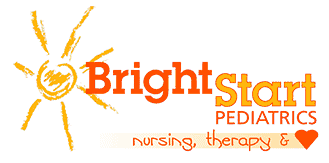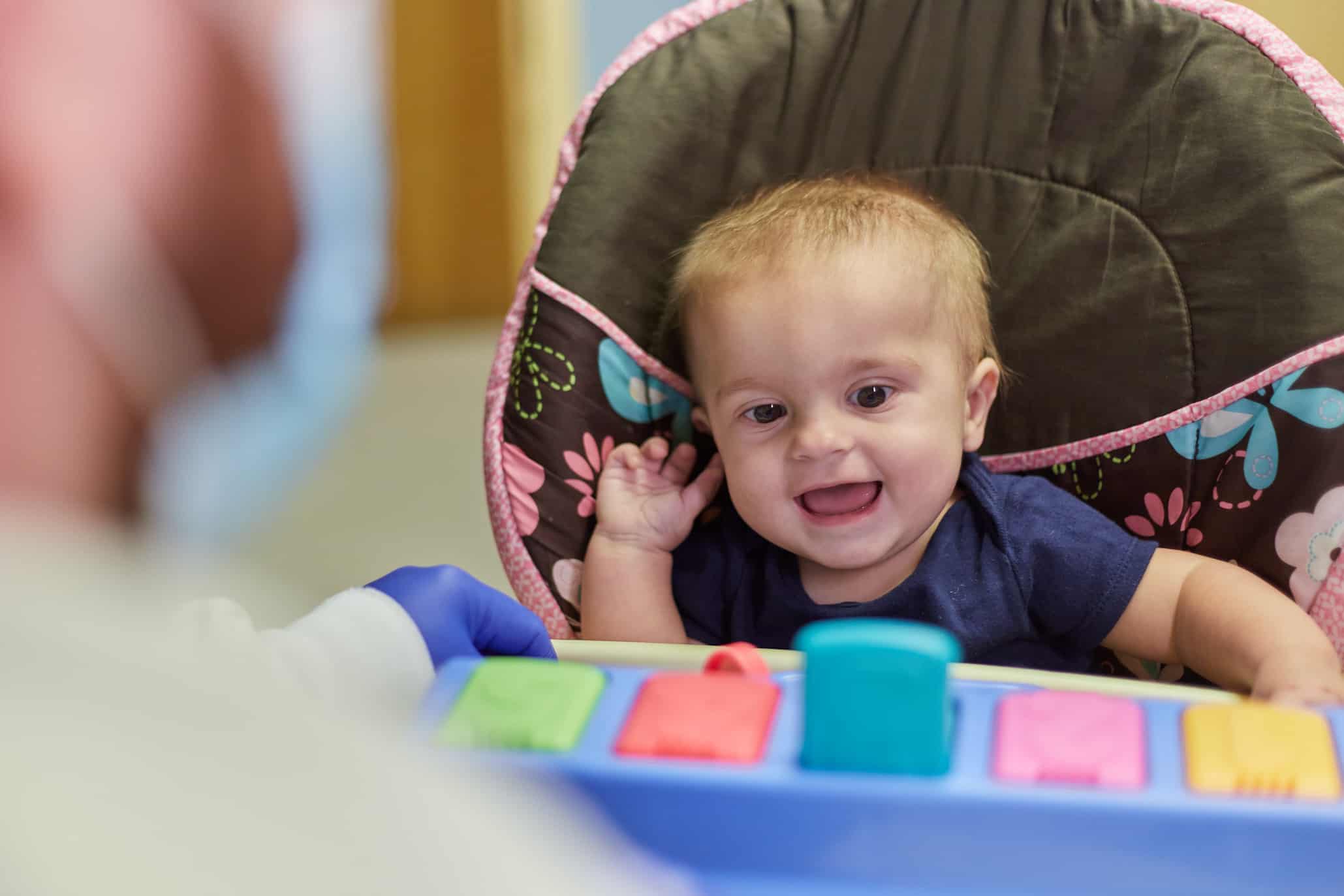Speech therapy for medically fragile infants and children develops communication skills and more.
For infants, these are pre-language skills; sounds, like cooing or babbling, locating sources of sound, and making eye contact with speakers, and using functional objects (rattles and other toys).
In older children, developing vocabulary and grammar promotes understanding and expression. Articulation improves the way children say sounds in words to be better understood. Children with a hoarse, harsh or breathy vocal quality receive voice teaching techniques to promote functional vocal quality.
Speech therapy may teach sign language skills, use picture boards or communication devices to help children communicate their basic wants and needs, or more complex thoughts and ideas.
For many infants and children, Speech therapy is focused on oral motor skills, strengthening the muscles needed for speech along with sucking, swallowing, and chewing.

